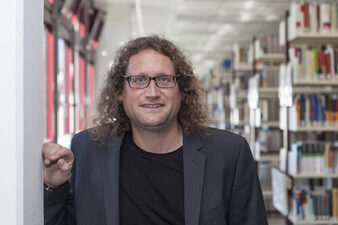Internationalization for Building Competences
As part of Prof. Dr. Michael Boecker's four-year DAAD-funded project, students from southern Africa and students from the FHDO met for their first workshop.
The focus was on the major global issues summarized by the three leading international social work associations in the "Global Agenda of Social Work".
With their own contributions and input from external speakers, the workshop participants explored the consequences of globalization and its impact on social work. Topics such as social justice, the division of society into rich and poor, social cohesion and social relationships as well as the challenges of ecological, social and economic sustainability gave rise to intensive discussions and a stimulating exchange.
In addition to the scientific examination of the above-mentioned topics, the concrete effects of the consequences of globalization could be experienced during numerous practical visits. For example, the German and African students visited the Caritas association in Hagen and were very impressed by the association's diverse projects on the topics of refugees, migration and poverty prevention. Globalization and its consequences are not just an abstract theoretical construct, but influence everyday life and the coexistence of people in social spaces.
At the end of the 10-day workshop, all participants were very satisfied and can hardly wait to consolidate the results in another workshop. This will take place from July 20 - 30, 2020 in Durban (South Africa).
Background to the project:
The aim of the four-year project is to set up a practice office in Durban to enable stronger networking between science and practice. In addition, events with the same content will be developed at both universities, where students can exchange ideas in several international workshops.
The project should not only contribute to the internationalization of teaching, but also facilitate further cooperation partnerships with the University of KwaZulu-Natal and the University of Johannesburg. In addition, a Collective Impact Forum is to be founded in Durban, in which, alongside the participating universities, business enterprises and non-governmental organizations as well as local actors can shape social change on the ground.
In addition to Fachhochschule Dortmund, the University of KwaZulu-Natal and the University of Johannesburg are cooperation partners.
Prof. Michael Boecker, Dr.
Appointments can be arranged at short notice by e-mail

